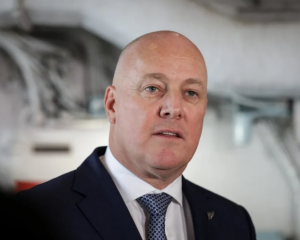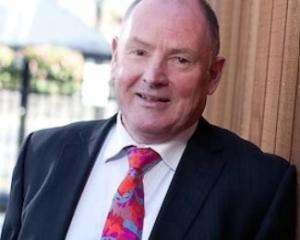
Dunedin-based Turei is chairing the Make it Legal Trust, in support of legalising the use of recreational cannabis, which will be put to a referendum next election.
She objects to the need for office holder of such organisation to put their home addresses on the bottom of promoter material, if the organisation does not have a premises.
She told the justice committee it should be sufficient for the registered promoter to supply his or her address to the Electoral Commission, which could then be available publicly.
One of her trust's campaigners had had "a random" turn up to her house and had been quite startled by it.
Turei said having that extra step in the process would make people feel safer.
"It would stop local randoms from coming to people's houses and harassing them."
Turei, who will be the registered promoter for the Make it Legal group, said it was important for individuals and organisations to "feel safe in their participation in the democratic process".
The justice committee is considering the Referendums Framework Bill, which sets out the rules on referendums to be held at the next election, including on advertising.
The Government is proposing that decision to hold a cannabis referendum and the question itself will be decided by an order-in-council, on the recommendation of the Justice Minister, rather than the usual method which is that the referendum details are passed in law by Parliament.
The Government will publish a draft recreational cannabis law setting but it won't have been through Parliament (medicinal cannabis has already been approved under law).
The End of Life Choice Bill before the House at present will possibly be the subject of a referendum as well. New Zealand First has lodged an amendment requiring that it not come into force unless a majority of voters supports it.
Wellington-based electoral law specialist Graeme Edgeler appeared in person before the committee to raise concerns.
He said a referendum question which was set by order in council was more likely to be challenged in the courts than if it were approved by Parliament, which was not subject to challenge in the courts.
It also created a precedent in which future governments could hold a referendum without consulting Parliament.
"One possibility might be a future government holding a referendum on the retention of the Māori seats," his submission said.
Edgeler said there were alternatives to partially ameliorate the problem inherent in the order-in-council process.
For example, If Parliament was not involved in setting the question, it could still be involved by requiring that no order-in-council referendum could be set without the House first approving the question through a motion of the House.
On the Metiria Turei submission, Edgeler said it was preferable that advertising rules for referendums and for elections were the same.
So if the address requirement for third-party promoters was changed for referendum advertising, it should also be changed for election advertising.
Dunedin-based Turei resigned as Greens co-leader not long before the 2017 election after admitting benefit fraud as a solo parent in the early 1990s. Then, amid internal turmoil in the Greens, she said she would not return to Parliament at all.
She was a lawyer before entering politics in 2002.
Comments
The link between weed and mental illness is proven .... once again.
There are more important issues than this. if your ill and dope helps . great/ but just full blown legal . they will have to reopen the mental homes they closed in the 90s dopes strong these days... not like 40 years ago.













